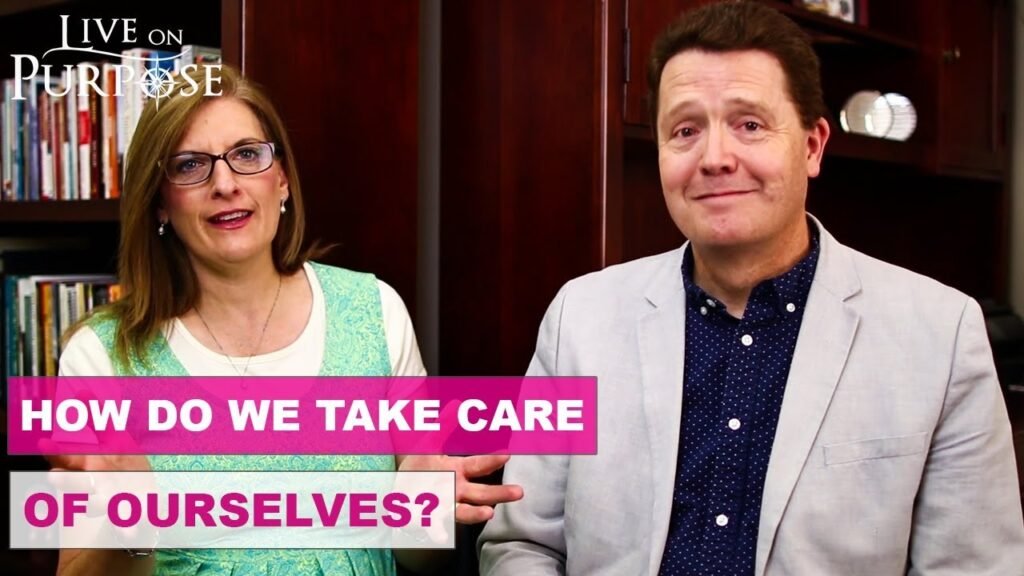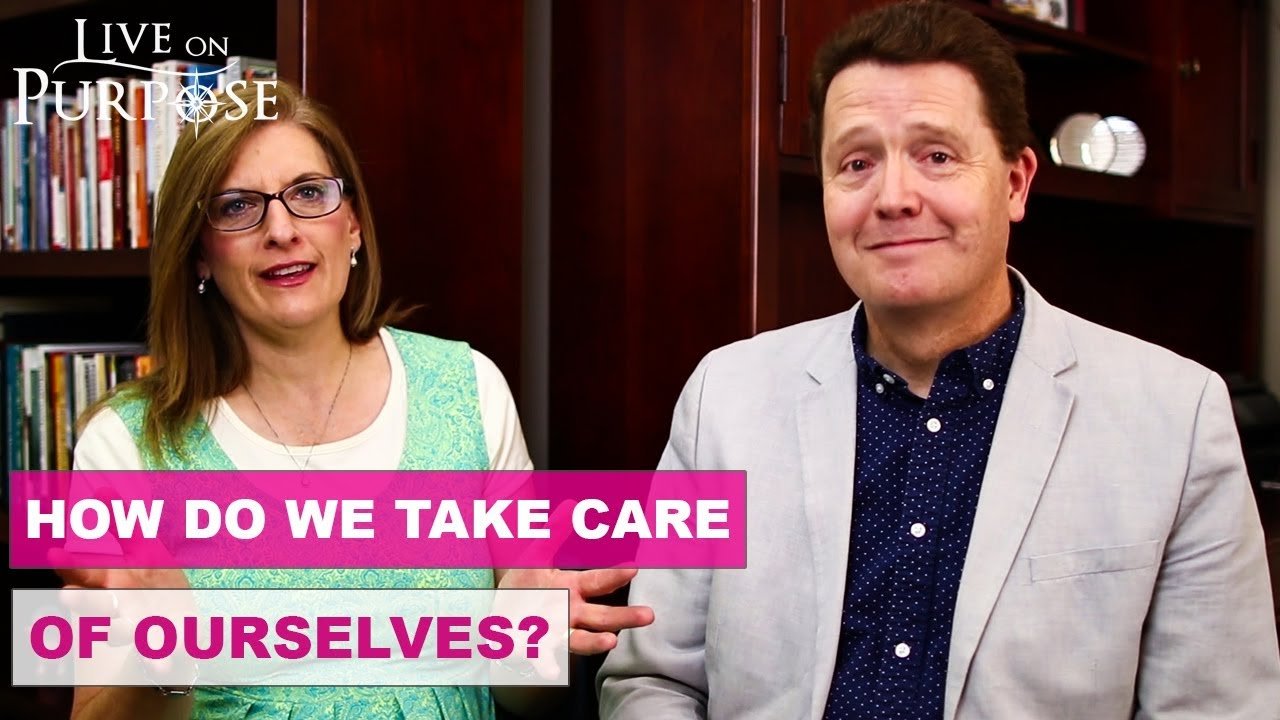“Self-care strategies for parents” is the name of a video by Live On Purpose TV that delves into the importance of taking care of oneself as a parent. The video discusses the analogy of putting on your oxygen mask first in parenting and offers suggestions for being intentional about self-care and planning for respite care. It emphasizes the importance of connecting with other adults, finding relief and self-care in activities such as journaling and listening to music, and engaging in hobbies. The impact of self-care on productivity and well-being is also highlighted, along with the importance of small acts of kindness and service, as well as savoring moments throughout the day. Resources for further support in parenting are mentioned as well.
As a parent, it’s easy to become so caught up in nurturing and caring for your family that you forget to take care of yourself. In the video “Self-care strategies for parents” by Live On Purpose TV, you’ll find a wealth of ideas and suggestions for practicing self-care. From being intentional about self-care and respite care to connecting with other adults and engaging in activities like journaling and going for walks, this video covers it all. You’ll also learn about the impact of self-care on your productivity and well-being, as well as how small acts of kindness can boost your energy and mental health. Don’t miss out on this valuable resource for all parents looking to prioritize their own well-being.
Importance of self-care as a parent
Being a parent is a demanding and rewarding role, but it’s crucial to remember that taking care of yourself is just as important as taking care of your children. Self-care is about prioritizing your own well-being and ensuring that you have the energy and resources to meet the needs of your family. Neglecting self-care can lead to burnout, stress, and a decreased quality of life. In order to be the best parent you can be, it’s essential to prioritize your own physical, emotional, and mental health.
The analogy of putting on your oxygen mask first
Just like the safety instructions on an airplane, where you’re instructed to put on your own oxygen mask before helping others, self-care is about taking care of yourself first so that you can better take care of others. The analogy is particularly fitting for parents, as it highlights the importance of prioritizing your own well-being in order to effectively care for your children. By taking the time to recharge and meet your own needs, you’ll be better equipped to handle the challenges and responsibilities of parenting.

Impact on productivity and well-being
When you prioritize self-care, you’ll likely notice a positive impact on both your productivity and overall well-being. Taking the time to rest and recharge can lead to increased energy and focus, allowing you to be more efficient and effective in your parenting duties. Additionally, self-care activities can help reduce stress and promote a sense of calm and balance. By investing in your own well-being, you’re not only benefiting yourself but also creating a healthy and positive environment for your children.
Strategies for intentional self-care
Now that we understand the importance of self-care, let’s explore some strategies for incorporating intentional self-care into your daily routine.
Planning for respite care
It’s important to plan for and make arrangements for respite care. This can include asking a family member or trusted friend to watch your children for a few hours or hiring a babysitter. By taking regular breaks, you’ll have the opportunity to rest, recharge, and engage in self-care activities. Remember, it’s not selfish to prioritize your own well-being; it’s necessary for your mental and emotional health.
Connecting with other adults and fostering friendships
Parenting can sometimes feel isolating, so it’s crucial to connect with other adults and foster friendships. Find ways to socialize and engage with other parents who are in a similar stage of life. Join local parenting groups, attend community events, or take the initiative to reach out to other parents at your child’s school or extracurricular activities. Building a support network of friends who understand the joys and challenges of parenting can provide invaluable support and companionship.
Finding relief and self-care in activities
Engaging in activities that bring you joy and relaxation is a vital part of self-care. Whether it’s journaling, listening to music, going for walks, or engaging in hobbies, find activities that allow you to unwind and recharge. Carve out dedicated time each day, even if it’s just a few minutes, to focus on these activities. Remember, self-care doesn’t have to be time-consuming or extravagant – it’s about finding small moments of joy and respite amid the busyness of parenthood.
Importance of regular exercise and building a support community
Regular exercise is an essential component of self-care. Not only does it have physical health benefits, but it also contributes to mental and emotional well-being. Find an exercise routine that you enjoy, whether it’s going for a run, practicing yoga, or attending fitness classes. Additionally, consider joining a support community or group focused on physical fitness. Having a community of like-minded individuals can provide accountability, motivation, and even opportunities for socializing while taking care of your physical health.
Boosting energy and mental health
In addition to the strategies mentioned above, there are several other ways to boost your energy and improve your mental health as a parent.
Engaging in small acts of kindness and service
Engaging in small acts of kindness and service can have a profound impact on your energy and mental health. Taking the time to reach out to others and offer support or assistance not only benefits them but also brings a sense of fulfillment and purpose to your own life. This can be as simple as writing a note of appreciation to a friend or neighbor, volunteering in your community, or performing random acts of kindness. These small gestures have the power to uplift your spirit and increase your overall well-being.
Allowing oneself to experience and acknowledge ‘blue’ moments
Parenting is a rollercoaster of emotions, and it’s important to allow yourself to experience and acknowledge the ‘blue’ moments. It’s normal to feel overwhelmed, frustrated, or even sad at times. Instead of suppressing these feelings, give yourself permission to process and validate them. Reach out to trusted friends or family members for support and understanding. By acknowledging and accepting a wide range of emotions, you can better navigate the challenges of parenting and maintain your emotional well-being.
Savoring moments during the day
In the midst of busy schedules and never-ending to-do lists, it’s easy to overlook the precious moments that occur throughout the day. Practice mindfulness and savor the small moments of joy and connection with your children. This can be as simple as observing their laughter, appreciating their growth and development, or engaging in meaningful conversations. By being present and conscious in these moments, you’ll cultivate a deeper appreciation for the joys of parenting and create lasting memories.
Importance of being present and conscious in parenting
Being present and conscious in parenting means actively engaging with your children and cherishing the time you have together. It involves putting away distractions, such as phones or work-related tasks, and focusing on creating meaningful connections. By being fully present, you’ll not only strengthen your bond with your child but also enhance your own sense of fulfillment and purpose as a parent. Remember, the time you have with your children is precious and fleeting, so make the most of it by being present in the moment.
Personal experience of savoring daily activities
To illustrate the importance of savoring daily activities, I want to share a personal experience of mine. One day, while washing dishes after dinner, I consciously chose to be fully present in that moment. Instead of rushing through the task, I paid attention to the warmth of the water, the comforting rhythm of scrubbing, and the satisfaction of seeing dishes become clean. By savoring this simple activity, I found a sense of calm and gratitude. It reminded me of the precious time I have with my children, even during mundane tasks. This experience taught me the power of being present and conscious in everyday activities, and the impact it has on my own well-being and the connection I share with my children.
Further resources for parenting support
If you’re looking for additional support and guidance in your parenting journey, there are numerous resources available to you. Here are a few recommendations:
Recommended books and websites for parenting guidance
- Parenting: Illustrated with Crappy Pictures by Amber Dusick
- The Whole-Brain Child: 12 Revolutionary Strategies to Nurture Your Child’s Developing Mind by Daniel J. Siegel and Tina Payne Bryson
- Zero to Five: 70 Essential Parenting Tips Based on Science (and What I’ve Learned So Far) by Tracy Cutchlow
Local support groups and community resources
Look for local support groups in your area that cater to parents or join parenting classes offered by community centers or local organizations. These groups provide a safe and judgment-free space to connect with other parents, share experiences, and gain valuable insights.
Online communities and forums for parents
Browse online parenting forums and communities where you can ask questions, seek advice, and connect with other parents from around the world. Websites like BabyCenter, The Bump, and Reddit’s parenting communities can be great sources of support and information.
Remember, self-care as a parent is not a luxury but a necessity. By prioritizing your own well-being, you’ll not only improve your own quality of life but also create a positive and nurturing environment for your children to thrive. Take the time to incorporate intentional self-care strategies into your daily routine, and don’t hesitate to reach out for support and guidance when needed. Parenting is a journey, and by taking care of yourself, you’re setting the foundation for a healthier and happier family.

